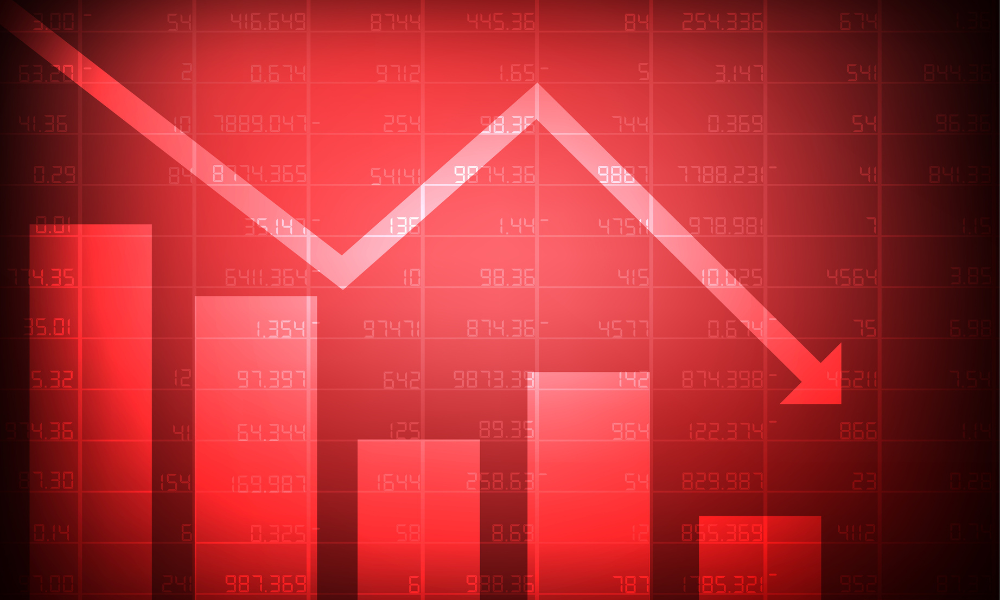Political stability, lower inflation risk shielding doomsday scenario according to Kari Norman

Fears over a deep Canadian recession have been floated after a chaotic start to 2025 filled with tariffs, uncertainty and a destabilized political situation.
But the election of Liberal leader Mark Carney has alleviated Canada’s political ambiguity, while US President Donald Trump seems to have toned down his frantic tariff policies – at least for now.
These signals of relief suggest to Desjardins economist Kari Norman that a recession may not be as vicious as previously expected. She still expects a slight recession with two quarters of negative growth and a rise in unemployment beginning in Q2, though now believes the tailwinds from a calmer political and economic climate will reduce its impact on the Canadian economy.
Norman suggests that Carney’s Tuesday visit to the White House produced positive signals towards an easing of the fractious relationship that has shaken the Canadian economy. She points to a marked difference between the fashion Trump speaks about Carney versus the way he viewed former Prime Minister Justin Trudeau, and hopes the relationship between the two leaders remains constructive.
“I think that's a positive step in good relations between our two countries, and they seem to have a good relationship building,” Norman said. “Trump is referring to Carney as prime minister, not governor as he did with Trudeau. I think that’s a sign that he has more respect for Carney.”
The economic outlook has shifted drastically a month after Trump announced his “Liberation Day” tariffs, according to Norman. She says there was a belief that the tariffs would drive down growth even further, but have remained relatively steady at 10 per cent for non-CUSMA compliant products. While 25 per cent tariffs on steel and aluminum have dealt a massive blow, Norman says the current tariff situation is much more manageable than what had been feared ahead of Trump’s April announcements.
“Right before that Liberation Day date, we were definitely looking at a recession starting as early as the second quarter of this year,” she said. “We were expecting a worse outcome for tariffs, and now we seem to have more of them locked in at 10% rather than being 25% across the board, and the CUSMA-compliant goods as well. We're still looking at two quarters of negative growth, but just skirting that edge.”
Inflation has also dropped favourably according to Norman, who points to Carney’s removal of the consumer carbon tax, lower oil prices and dropping housing prices as indicators of reasonable future inflation rates.
“We've seen a lot of downward pressure on inflation, which is great. One component of that is removing the gas tax, because that was supposed to increase,” she said. “We also have lower oil prices, so that also feeds into lower inflation … we're still looking at the CPI inflation being slightly below the 2 per cent target for the next year, so that's not really on our radar as a concern at the moment.”
Norman explains that after the resignation of Trudeau, a provincial election and a federal election, the economy is finally able to see some stability from Canadian leadership after months of political and economic uncertainty. Paired with the prediction that Trump will eventually ease his uncompromising tariff policies, Norman believes that having an established Canadian leadership could reduce the risk of a more severe, long-term recession.
“Our outlook is basically that the status quo is going to hold pretty much through the rest of this year,” she said. “We'll continue to see the tariffs we currently have, and the CUSMA compliant goods will continue to be exempt. The trade war with other countries in the US will also continue, but these will gradually start to be resolved towards the end of this year or early next year.”
Finding a solution to Trump’s tariff dispute is a primary concern to Norman, who says that the uncertainty from unpredictable policies has halted investment from businesses and spending from consumers.
“It's not only the tariffs themselves, it's also the uncertainty that that causes,” she said. “Businesses don't know whether to invest or whether to move, because everything's just so unpredictable right now. Households also don't know whether to make any big spending purchases.”
While diversifying Canada’s global trade partners has been an early priority for Carney, Norman cautions that moving away from the convenience offered from the US market will be time-consuming and challenging. She shares the same view on interprovincial trade, pointing to some practical difficulties that could extend Carney’s Canada Day timeline.
“I think it's great that Canada could diversify international trade. My initial thought is, if it was that easy, we'd already be doing it. So why aren't we? It's a lot easier to ship something 300 kilometres south of the border than it is across an ocean,” she said, “Shipping from the Atlantic provinces to the western provinces is a lot farther than north-south. Most of Canada's population is within 300 kilometres of the border, so there's still a lot of pull for international trade going north-south.”



